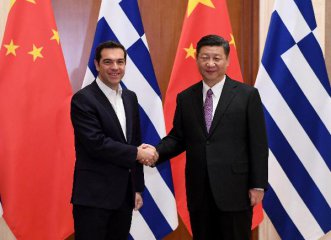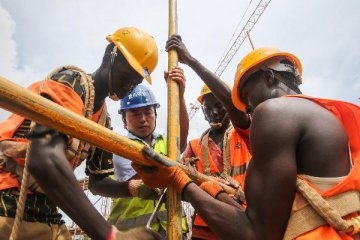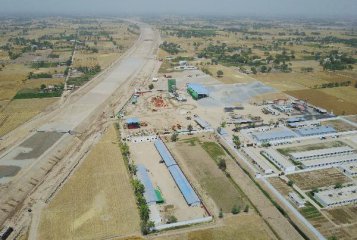
Marius Schad, an emerging market analyst of Germany's HSH Nordbank, said the China-proposed Belt and Road Initiative has the potential to unleash economic growth in the emerging countries.
The 31-year-old analyst made the remarks in an interview with Xinhua.
He has finished writing his first research report "Focus Neue Seidenstrasse (Focus New Silkroad)" on the Belt and Road Initiative and published it lately.
He has long focused on the significant impact of massive infrastructure investments in countries along the Belt and Road.
Schad's report starts with the Chinese proverb: "Build roads first if you want to be rich." The reason, he said, is "infrastructure is frequently the starting point of economic growth."
The analyst pointed out that the emerging countries along the Belt and Road have a huge infrastructure gap, compared with industrialized nations. In his view, enhancing infrastructure investment can boost economic growth via at least two channels.
Firstly, infrastructure investment has a direct impact on emerging countries' capital stock; and secondly, high-quality infrastructure indirectly contributes to economic growth by reducing transportation costs and giving incentives to corporations to invest in these regions, the analyst said.
It is often hard to quantify the accurate impact in the short run, given the different stages these projects are at, Schad said.
However, in the long run, he noted, emerging nations will definitely be able to reap benefits from their improved or newly-built infrastructures.
For a long time, Schad said, the Belt and Road Initiative has been a focus of HSH Nordbank, a medium-sized bank who positions itself as "a competent partner for medium-sized entrepreneurs in their northern German home region and in German metropolitan areas, in both business and personal matters."
Schad told Xinhua that the recent developments of the Belt and Road Initiative made him intensify related research.
He said that in fact, his interest in the Chinese economy began in his student days in Tongji University, Shanghai, between 2013 and 2014, during which the initiative attracted his attention for the first time.
"It is our obligation to keep our clients informed about the significant issues in the emerging world," he said, believing that the Belt and Road Initiative will play an integral part within those regions and "we will continue to focus on it in the future."
the Belt and Road > Views





















Latest comments